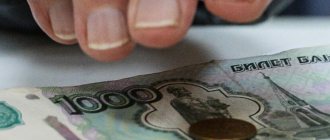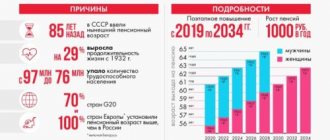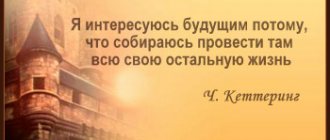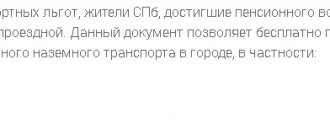Author Anton Kulikov
09.10.2020 13:32
Policy
The Russian authorities have returned to the topic of indexing pensions for working pensioners. They stopped indexing the insurance pension four years ago. Then this was explained by the need to reduce the deficit of the Russian Pension Fund.
Will indexation of pensions for working pensioners be returned or not in 2021?
The initiative to return to the annual indexation of pensions for working pensioners in Russia in 2020 was taken by the LDPR and A Just Russia parties, whose deputies call the lack of growth in pensions of working citizens social injustice.

According to the proposed bills, pension indexation is due to all pensioners, and not just to those who do not work or receive social benefits. It is proposed to set the indexation amount annually taking into account the level of inflation.
The government did not support the idea. The Ministry of Finance clarified that working pensioners' wages are indexed, which means inflation has virtually no effect on their standard of living. There is no money in the budget to increase pensions and there won’t be any in the near future.
The verdict, sad for working elderly citizens, was softened the day before: the government will still consider the issue of indexing pensions for working pensioners. The Cabinet of Ministers has been instructed to “calculate” estimated expenses from the budget. The initiator of the return to the painful issue was the country's President Vladimir Putin.
“As soon as we have proposals, we will present them to the head of state,” said Minister of Labor and Social Policy Anton Kotyakov.
Thus, returning to consideration of the issue gives us hope that pensions for working pensioners will still be indexed in 2021. But under what conditions and for what amount, we can only guess.
In accordance with amendments to the Constitution
Everyone immediately joined in the discussion of the issue. This happened after the leader of A Just Russia, Sergei Mironov, the issue of fair indexation of pensions during an online meeting of the president with the leaders of Duma factions .
Vladimir Putin supported Mironov’s proposal, instructing the government to prepare proposals for resuming the indexation of pensions for working pensioners.
It is worth recalling here that, according to the adopted amendments to the Constitution, indexation of pensions is mandatory for all pensioners, regardless of whether they work or not . And this should happen at least once a year.
And, of course, we should not forget that elections to the State Duma will be held next year. Consequently, the issue of indexation of pensions may become one of the main ones for political parties. According to Sergei Mironov, we are talking about about ten million people .
Why are pensions of working pensioners in Russia not indexed?
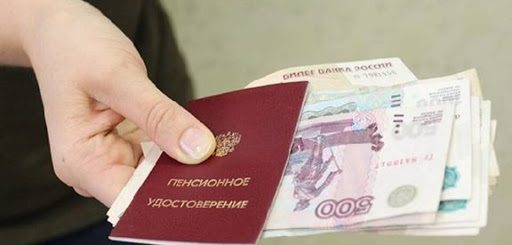
The freezing of the annual indexation of pensions of working pensioners in Russia occurred in 2020, and a return to it is discussed in society almost every year.
The government’s tactics are clear: the state “saves” on payments to those citizens who have additional financial support in the form of wages. For non-working pensioners, pensions are indexed annually, since they have no other income.
They promised to return the indexation of pensions to working pensioners in 2020 , after the adoption of the Pension Reform regarding raising the retirement age. But the miracle never happened: only non-working pensioners received the promised “plus thousand” towards their pension, and even then not in full. Working pensioners were again left with nothing, promising to return to consider the issue “a little later.”
The lack of indexation of pensions for working pensioners is considered unfair in society, since older citizens who continue to work continue to fill the budget through tax deductions. Leaving them without the required allowances was a mistake, deputies initiating a return to indexation are sure.
But the Ministry of Finance is confident that there is no question of injustice, since wages for pensioners are growing at the same rate as for citizens of working age, which means the state is fully fulfilling its obligations.
Why did the authorities remember the indexation of pensions for working people?
MOSCOW, October 8 – PRIME, Valeria Knyaginina. Indexation of pensions for working pensioners will support the Russian economy and reduce the list of arguments in favor of shadow employment. At the same time, even if there is not enough money in the Pension Fund for such payments, pensions for workers will still be indexed: after updating the constitution, this is a direct responsibility of the state.
Putin: pensions will be indexed fairly
The other day, the leader of A Just Russia, Sergei Mironov, raised the topic of fair indexation of pensions. His idea was supported by Russian President Vladimir Putin and instructed the government to prepare proposals for resuming the indexation of pensions for working pensioners.
It would indeed be fair to restore the pensions of this category of citizens. In addition, the new constitution obliges all pensioners to index their pensions, regardless of whether they work or not. According to the amendments, pension indexation must be carried out at least once a year in the manner prescribed by federal law.
“If indexation does not happen in 2021, this is a violation of the constitution, which does not provide for exceptions,” explains Oleg Babich, head of the legal department of the Russian Labor Confederation.
They stopped indexing insurance pensions for workers in 2020, explaining this by the need to reduce the deficit of the Pension Fund (PFR). Now the fund is doing better. “The fact is that due to the increase in the requirements necessary to acquire pension rights (age, length of service, pension coefficients/points), the PFR budget is becoming less and less scarce every year,” explains head Evgeniy Biezbardis.
SHADOW EMPLOYMENT
The resumption of pension indexation could at least partially restore Russians’ confidence in the pension system and provide some support for pensioners who continue to work due to the need for money, Biezbardis believes.
“The abolition of indexation at one time had a dramatic impact on the statistics of officially employed older citizens. Unfortunately, the opposite effect will be much weaker,” he says.
The innovation will not affect the labor market, experts say. It is unlikely that working pensioners will start quitting their jobs. Unfortunately, in Russia the size of the pension is not so large that a person who has the opportunity to work and has no other sources of income would quit his job, explains Babich.
The Duma told when working pensioners can increase their pensions
However, indexation of pensions for working pensioners can still reduce the list of arguments in favor of shadow employment. Pensioners who previously hid the fact that they were working may think about formal employment. “If now their pension will be indexed, then what’s the point of hiding the fact that you work. It will be easier to officially find a job,” he believes.
ECONOMIC IMPLICATIONS
Indexation of pensions for working pensioners will certainly have a positive impact on the economy, experts are sure.
“It is obvious that this money will flow into the economy and help revive demand. People will be able to spend more, that is, demand will increase, and then supply,” says Babich.
Consequently, GDP will also increase, adds Maxim Shein, chief investment strategist at BCS World of Investments. “Consumer spending will increase. The share of household expenses in GDP is much lower in our country than in developed countries, and this is a growth point for Russia,” he says.
At the same time, the jump in inflation that many fear will not happen. And if there is any effect, it will be negligible. Firstly, due to the specifics of demand from pensioners. Secondly, inflation has a different nature and is determined by the actions of the Central Bank to target it at a level of up to 4%, the exchange rate and the cost of oil on international markets, experts explain.
INCREASE IN WALLETS
Pension indexation is simply maintaining the purchasing power of pensioners at the same level. Therefore, in order to find out by what percentage the pensions of working pensioners will increase, you need to determine the inflation rate as the minimum value by which they should be indexed, explains Pavel Kudyukin, a member of the University Solidarity trade union.
If the calculation of pensions does not affect the valorization of pension rights (changes in the amount of payments for citizens whose rights were infringed during the pension reform), then indexation will amount to several percent of the already paid pension in years of low inflation. Thus, it will return the indexation tool in case of sharp jumps in consumer prices, as happened in previous years, Biezbardis concluded.
The principle of increasing pensions for working pensioners on August 1, 2020
Pension increases will be based on certain points accumulated. Current payments will be recalculated only for those pensioners who worked legally in 2020. One point in monetary equivalent will be 81 rubles 49 kopecks, reports the portal Piterburger.ru. The maximum increase in payments will be three points, or, in other words, by 244 rubles 47 kopecks.
The entire process of earning points will depend on how much the retiree works. If he was at official work all last year and his employer paid the necessary insurance payments, then the person’s pension will be increased by 3 points. About a month, a pensioner should have received about 24 thousand rubles. If the salary was higher, then the increase will still not exceed 3 points.
The entire enlargement process will take place automatically. Pensioners will not need to go to local offices and write applications for a review of payments. Also, if a person quits, now he does not need to notify the Pension Fund about this: the information will come on its own and this will be taken into account when paying indexation.
Correction or indexing?
Every year the size of pension payments, albeit slightly, increases. But the scheme and terms of recalculation depend on the status of the pensioner:
- Pensions of non-working pensioners were indexed twice a year – in February and April.
- Payments to working pensioners were recalculated in August by increasing accrued pension points.
Indexation of pensions for working beneficiaries was frozen back in 2020 for the purpose of budget savings. This decision is enshrined in Law No. 385-FZ of December 29, 2015.
At the beginning of 2020, deputies introduced a draft law for consideration, according to which indexation of pensions was to be resumed from July 1, 2020. However, its consideration was postponed.
Recent changes in pension legislation have resulted in the spread of false information. Thus, the network first frightened pensioners with mythical e-points, then news appeared about the resumption of indexation and an increase in pensions from August 1, 2020.
This information has not been confirmed by official sources. There are no plans to index pension payments for working pensioners in 2020.
The government does not plan to return to the issue of “frozen” indexation, since the growth of real incomes of the population, including working pensioners, exceeds the rate of inflation.
Reference! Missed indexations are taken into account in the final calculation of the pension after retirement.
Increased expectations
According to him, the party sent a proposal to the government to resume indexation of pensions for working pensioners.
United Russia's proposals provide for both the simultaneous restoration of indexation for all categories of working pensioners, and a phased scenario. “If it was impossible to implement the best option, we also had compromise proposals,” said Isaev. The party has already discussed proposals for indexation with both the Pension Fund and the Ministry of Labor. “We’ll see what answer our colleagues from the government will give in connection with the order of the Russian President,” Isaev noted.
On October 6, President Vladimir Putin discussed with the leaders of factions in the State Duma the topic of indexing pensions for working pensioners. These payments have not been indexed since 2020; this was done to reduce the Pension Fund deficit.
In turn, as reported by RBC, the Ministry of Labor is exploring all possible options for increasing the pension provision of working pensioners. As the ministry's press service noted, all interested parties are involved in this process.
First Deputy Chairman of the Federation Council Committee on Social Policy Valery Ryazansky believes that at the legislative level it is quite possible to pass a law on the return of indexation of pensions of working pensioners.
— From the point of view of passing legislative procedures, this is quite possible to do. But from the point of view of real implementation, this issue can only be resolved at the government level,” the senator emphasized in a conversation with a Rossiyskaya Gazeta correspondent.
Ryazansky recalled that today more than 9 million pensioners work in Russia. “It is necessary to find quite serious funds to ensure that every pensioner has an annual indexation of pensions. Let me remind you that our pensions are now being indexed at an increased rate. That is, every year it exceeds annual inflation,” the senator emphasized. According to him, it is necessary to allocate 150-180 billion rubles from the budget annually to index the pensions of working pensioners. “Personally, I believe that indexing pensions for working pensioners is important from the point of view of social justice. After all, people have earned their pensions. This is part of their work history,” the senator emphasized.
The draft of the main characteristics of the budget of the Russian Pension Fund for 2021 and for the planning period of 2022 and 2023, which was previously presented for discussion by experts and is available to Rossiyskaya Gazeta, predicts how much pensions will increase over the next three years.
Indexation of pensions of working pensioners would require 150-180 billion rubles annually
Insurance pensions for non-working pensioners are indexed annually from January 1. This year their average amount was 16.4 thousand rubles. Every year pensions increase by about a thousand rubles. In 2021, the average old-age pension will be 17,432 rubles, in 2022 - 18,357 rubles, in 2023 - 19,283 rubles.
This will happen after indexing. In 2021, insurance pensions are expected to be indexed by 6.3 percent; in 2022 - by 5.9 percent; in 2023 - by 5.6 percent. This is higher than the annual inflation rate. According to the forecast of the Ministry of Economic Development, inflation in the next three years should not exceed 4 percent.
What has the government taken from working pensioners?
Firstly
, this is, of course, pension indexation. During all this time, pensioners who continue to work have received a huge loss of money; in 2019 alone, this was 6 thousand rubles on average.
Secondly
, they were no longer paid additional payments up to the subsistence level. Let us remind you that all pensioners whose income does not reach the subsistence level in their region of residence are entitled to this payment.
Third
, pensioners receiving a long-service pension, as well as an insurance pension in the event of the loss of a breadwinner, were left with nothing at all.
Fourth
, working pensioners were prohibited from caring for them, which means an additional 1,200 rubles to their pension monthly.
Fifthly
, for the period of work they were deprived of their old-age social pension. This type of pension is assigned to men upon reaching 70 years of age, and to women - 65 years of age, if their right to an insurance pension is not confirmed, that is, they lack either the required length of service or pension points.

